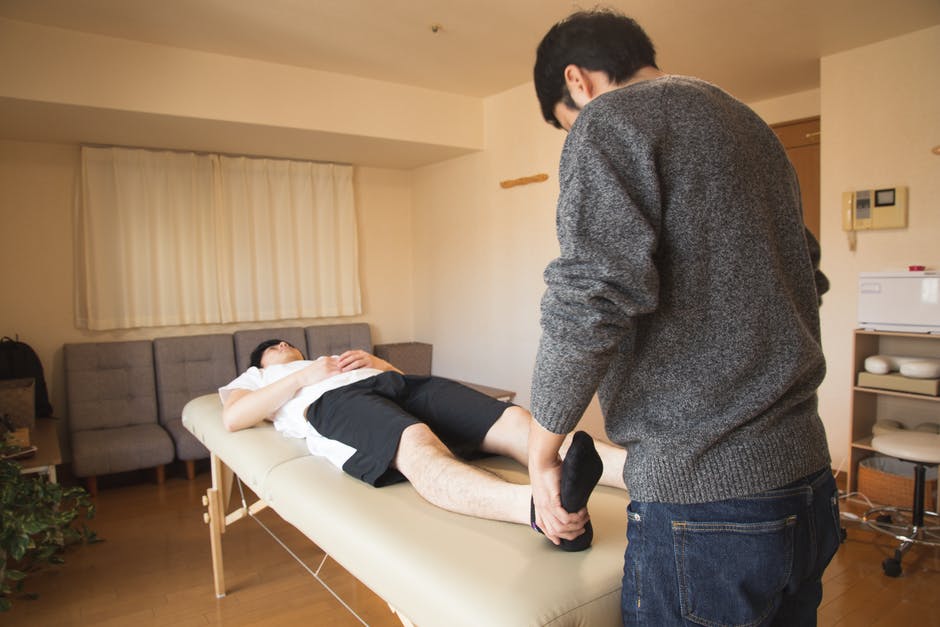Physical therapy is viewed through the lens of physical rehabilitation, focusing on the treatment of injuries and physical ailments. However, the mental health benefits it offers are equally significant and deserve recognition. That’s right: engaging in physical therapy can facilitate healing for both the body and mind. By addressing physical challenges through therapeutic exercises, patients find themselves becoming more confident and empowered. Keep reading to learn more.

Understanding the Connection Between Body and Mind
The relationship between the body and mind is intricate and profound. Physical pain often correlates with emotional stress, and vice versa. Someone suffering from chronic pain may experience heightened levels of anxiety and depression. At the same time, mental health issues can manifest physically, resulting in fatigue and muscle tension.
When acknowledging this connection, physical therapists can design treatment plans that alleviate physical discomfort and enhance emotional well-being. For seniors who deal with physical and mental pain, you can learn more about Be On The Move — these at-home physical therapists may employ techniques that focus on physical pain while promoting a deeper feeling of relaxation and mental clarity. Patients will leave sessions with decreased pain and enhanced emotional resilience.
Physical Activity and Its Impact on Mental Health
Regular physical activity has been proven to be a highly effective strategy for improving mental health. The release of endorphins during exercise acts as a natural mood lifter and fosters a sense of well-being. When participating in physical therapy, a structured approach to exercise can introduce individuals to activities they may not have pursued otherwise.
Completing a challenging therapeutic session fosters a sense of accomplishment and instills confidence that can transcend beyond the therapy room. These psychological benefits underscore the multifaceted nature of therapy, as patients often report feelings of empowerment as they navigate through their recovery.
Building Social Connections Through Therapy
Physical therapy occurs in group settings, which can significantly enhance the mental well-being of individuals. These group sessions provide an opportunity for patients to build connections with others who may be experiencing similar struggles. The sense of community that develops can alleviate feelings of isolation and loneliness, common among those dealing with health challenges. By sharing experiences and encouraging each other, individuals often find a renewed sense of hope and motivation.
The encouragement and camaraderie found in these settings can turbocharge progress, making each session something to look forward to. Therapists are also able to foster a supportive environment that encourages open dialogue. Such interactions extend beyond simple therapy, creating lasting friendships that bolster emotional health.
Mindfulness and Relaxation Techniques in Physical Therapy
Incorporating mindfulness and relaxation techniques into physical therapy sessions can significantly enhance the therapeutic experience. Deep breathing, guided imagery, and progressive muscle relaxation can all be integrated into physical activities to reduce stress.
Fostering a state of mindfulness can improve physical performance and equip patients with tools to handle emotional stress more effectively. When patients learn to calm their minds, they find it easier to focus on their physical rehabilitation. Therapists often guide patients in techniques that they can use proactively outside of therapy, contributing to long-term mental health benefits. Patients emerge from therapy with a comprehensive toolkit for viewing their challenges from new perspectives. Thus, this comprehensive delivery of care allows for a richer healing experience.
Setting Achievable Goals and Building Confidence
When collaborating with therapists to set tangible objectives, patients can experience a sense of accomplishment at multiple levels throughout their rehabilitation. Each small victory reinforces self-efficacy, helping individuals to believe in their capacity to overcome challenges. This process instills a more positive self-image, as patients begin to view themselves as capable and resilient.
The experience of seeing progress, no matter how incremental, can be tremendously uplifting, sparking motivation to maintain their journey toward improved health. This structured approach also serves to diminish self-doubt, with each completed goal acting as a stepping stone toward greater ambitions. Individuals learn to recognize the significance of their progress, both physically and mentally.
Long-Term Mental Health Impact of Physical Therapy
The mental health benefits of physical therapy extend far beyond the duration of treatment. Many individuals report sustained positive mental health outcomes even after their therapy sessions have concluded. As patients develop coping strategies, emotional resilience, and improved physical health, they become better equipped to manage everyday stress and challenges. The skills learned in physical therapy translate to various aspects of life, improving relationships and enhancing work performance.
Ongoing commitment to physical activity can create lifelong habits that reinforce a healthy lifestyle. Maintaining these practices can contribute to a substantial reduction in anxiety, depression, and stress in the long run. Long-term engagement with physical activity and therapeutic practices establishes stability in mental health and creates a solid foundation for navigating life’s ups and downs.

Coming to terms with the mental health benefits of physical therapy is a must. Combining physical and emotional healing offers a more comprehensive approach to wellness. This understanding allows individuals to move forward with renewed strength and resilience. That said, physical therapy proves to be a powerful tool for healing that goes far beyond the physical.
MindOwl Founder – My own struggles in life have led me to this path of understanding the human condition. I graduated with a bachelor’s degree in philosophy before completing a master’s degree in psychology at Regent’s University London. I then completed a postgraduate diploma in philosophical counselling before being trained in ACT (Acceptance and commitment therapy).
I’ve spent the last eight years studying the encounter of meditative practices with modern psychology.

